
Solar Panels and Water Heating: The Eco-Friendly Solution
January 31, 2024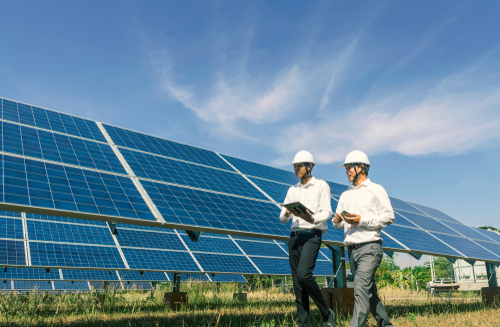
How Commercial Enterprises Can Benefit from Going Solar
March 15, 2024Choosing the Right Solar Panels for Your Home: Factors to Consider
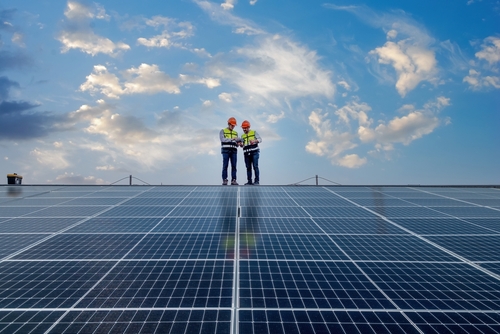
Choosing the Right Solar Panels for Your Home Factors to Consider
Choosing the Right Solar Panels for Your Home: Factors to Consider. With the global shift towards renewable energy, Singapore has seen a growing interest in solar energy among homeowners.
The decision to switch to solar power is a significant step toward sustainable living, but it comes with the challenge of choosing the right solar panels for your home.
This article delves into the crucial factors homeowners must consider to make an informed decision. Read on!
Understanding Solar Panels
How Solar Panels Work
Solar panels convert sunlight into electricity using photovoltaic (PV) cells. When sunlight hits these cells, it causes electrons to move, creating an electric current.
This process allows solar panels to generate clean, renewable energy directly from the sun.
Types of Solar Panels
Solar technology offers several options, each with unique benefits and limitations. The three primary types are monocrystalline, polycrystalline, and thin-film solar panels.
- Monocrystalline panels, made from single-crystal silicon, are highly efficient and aesthetically pleasing but come at a higher cost.
- Polycrystalline panels, constructed from multiple silicon crystals, offer a balance between efficiency and affordability.
- Thin-film panels are versatile and lightweight, ideal for non-traditional surfaces, though they generally have lower efficiency.
Factor 1: Energy Needs
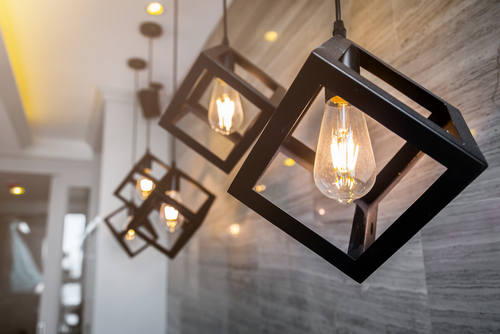
Understanding your home’s energy consumption is pivotal. Review your electricity bills to determine your average usage.
Solar installers often use this data to recommend a system size that matches your energy needs, ensuring your solar setup not only fits your consumption patterns but also maximizes your investment.
Factor 2: Type of Solar Panels
- Monocrystalline Panels: Highest efficiency rates; sleek aesthetic Cons: Higher cost; may not be the best value if space isn’t a constraint
- Polycrystalline Panels: Lower cost; moderate efficiency Cons: Less efficient than monocrystalline; slightly bulkier appearance
- Thin-Film Panels: Flexible installation options; lower cost Cons: Least efficient; requires more space for comparable energy output
Factor 3: Quality and Warranty
High-quality solar panels are a must for long-term reliability. Warranties, often ranging from 10 to 25 years, protect your investment against defects or underperformance. Opt for manufacturers with a strong track record and transparent warranty terms.
Factor 4: Cost and Budgeting
The initial cost of solar installation can be offset by long-term savings on utility bills. In Singapore, financial incentives like subsidies and tax rebates can reduce upfront costs. Analyzing cost versus return over time will guide your budgeting decisions.
Factor 5: Roof Compatibility
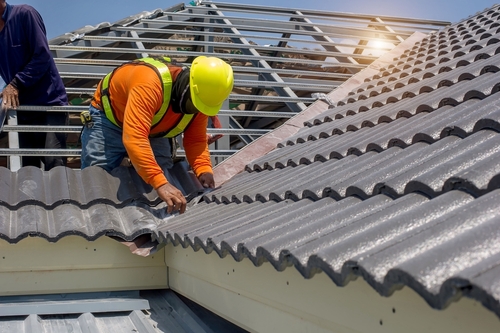
Evaluating your roof’s condition, material, angle, and exposure to sunlight is essential. Not all roofs are suitable for solar panel installation without modifications.
Factors such as shading from buildings or trees can also impact the effectiveness of your solar system.
Factor 6: Solar Panel Efficiency
Efficiency indicates how effectively panels convert sunlight into electricity. Higher efficiency means more power generation in less space, but it also comes with a higher price tag. Balancing efficiency with available roof space and budget is crucial.
Factor 7: Installer Reputation and Experience
The installer’s expertise directly affects the system’s performance. Look for certified professionals with positive reviews and significant experience. They should offer comprehensive consultations, custom system designs, and follow-up services.
Factor 8: Aesthetics
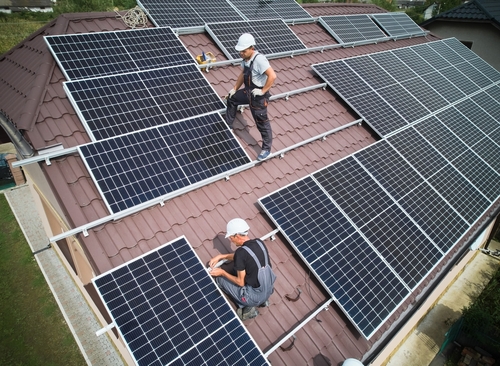
Solar installations can impact your home’s appearance. Nowadays, options range from traditional blue and black panels to innovative designs that mimic roof tiles. Considering aesthetics alongside functionality ensures your solar panels complement your home’s look.
Factor 9: Maintenance and Durability
Solar panels require minimal maintenance, typically involving occasional cleaning and inspections. Durability is also a key consideration, especially in Singapore’s tropical climate. High-quality panels can withstand harsh weather conditions, ensuring lasting performance.
Factor 10: Environmental Impact
Choosing environmentally friendly solar panels means considering the manufacturing process and materials used. Panels with a lower carbon footprint support your sustainable living goals more effectively.
Overcoming Common Misconceptions
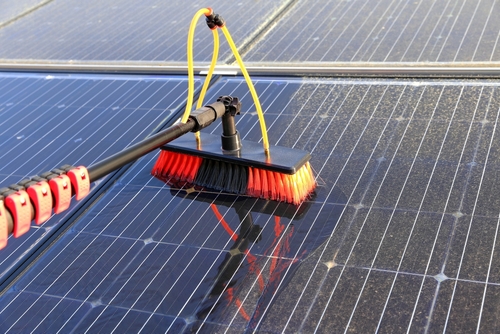
Misunderstandings about solar energy can deter homeowners from considering this renewable power source. Let’s address and debunk some of the most common myths:
1. Solar Panels Do Not Work on Cloudy Days
While it’s true that solar panels operate most efficiently under direct sunlight, they do still generate electricity on cloudy or overcast days.
Modern photovoltaic technology allows panels to capture different spectrums of light, meaning they can continue to produce power even when the weather isn’t perfectly clear.
2. Solar Energy Systems Are Too Expensive
The perception that solar power is prohibitively expensive is outdated. Costs have significantly decreased over the past decade, making solar energy more accessible than ever.
Furthermore, with various financial incentives available in Singapore, such as subsidies and rebates, the initial investment becomes much more manageable.
When considering the long-term savings on utility bills, solar energy systems offer an excellent return on investment.
3. Solar Panels Require Excessive Maintenance
Another common misconception is that solar panels need a lot of maintenance. In reality, solar systems are remarkably low-maintenance.
They require occasional cleaning to remove dust, leaves, or other debris that might block sunlight, but rain often takes care of this.
Most reputable solar panels are also highly durable, designed to withstand harsh weather conditions including heavy rain and strong winds.
4. Installation Damages Your Roof
Some homeowners worry that installing solar panels will damage their roof. However, professional solar installers are skilled at ensuring the integrity of your roof is maintained or even enhanced.
Proper installation includes assessing the roof’s condition beforehand. In many cases, solar panels can protect the areas of the roof they cover, reducing wear and tear over time.
5. Solar Panels Will Make My Home Harder to Sell
On the contrary, solar panels can increase your home’s attractiveness to potential buyers.
As awareness of environmental issues grows and energy costs rise, more people are looking for homes with sustainable features.
Solar panels can boost your home’s value, offering energy savings and environmental benefits that appeal to a broad market.
6. It Takes Too Long to Recoup the Cost of Solar Panels
The payback period for solar panels is often overestimated. With the reduction in solar panel costs, increases in efficiency, and available subsidies, many homeowners find that they can recover their initial investment much quicker than expected.
Additionally, the ongoing savings on electricity bills continue for the life of the system, which can be 25 years or more.
Frequently Asked Questions
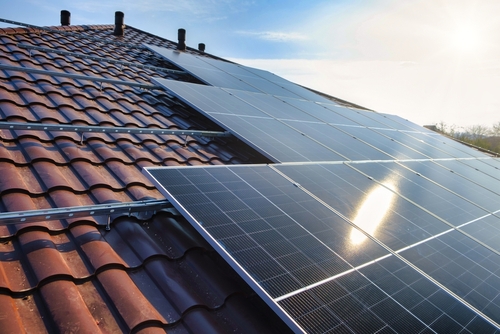
Can I install solar panels on a leased property?
Yes, but it requires the property owner’s permission. Some solar companies offer transferable leases or power purchase agreements, making solar accessible for leased properties.
What happens to solar panels during power outages?
Solar systems connected to the grid will shut down during outages for safety reasons. However, systems equipped with battery storage can continue to provide power.
Do solar panels increase home value?
Yes, solar installations can increase your home’s value by improving its energy efficiency and appeal to eco-conscious buyers.
How do weather conditions affect solar panel performance?
Solar panels can perform well under various weather conditions. While efficiency may decrease on cloudy days, panels are designed to withstand rain, wind, and even hail.
Choosing the Right Solar Panels for Your Home: Factors to Consider – Conclusion

Selecting the right solar panels involves careful consideration of your energy needs, budget, roof compatibility, and environmental impact.
By addressing these factors and consulting with experienced professionals, homeowners in Singapore can make informed decisions, paving the way for a sustainable and energy-efficient future.
Embark on your journey towards sustainable living by exploring solar energy options for your home.
Consulting with a solar energy expert can provide you with a detailed assessment of your home’s solar potential, helping you choose the right panels that meet your needs and contribute to a greener Singapore.
Are you seeking professional and reliable solar panel installation or consultation services in Singapore? Contact us today!




